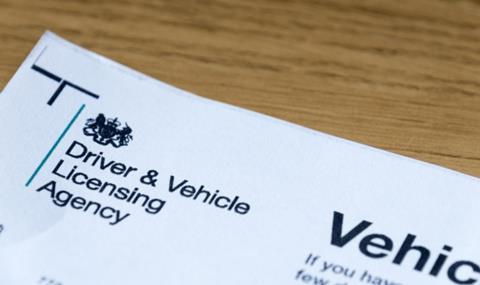
The DVLA is launching a campaign to warn operators, employers and driver agencies that it is a criminal offence to gain unauthorised access to driver data via the View Driving Licence (VDL) service.
The campaign follows concerns raised by an HGV driver that a driver agency had used his National Insurance number to access confidential details about his driving history.
The search had revealed that he had a drink driving offence, committed over five years previously, which resulted in the agency refusing to take him on.
However, had the agency accessed the driver’s licence history via the legal route it would have only been given information for up to five years, in line with rehabilitation legislation requirements.
The driver, who wishes to remain anonymous, wrote to the DVLA complaints team. In the email which he shared with Motor Transport, he stated: “It appears that the DVLA is inadvertently aiding and abetting the ability for others to delve into peoples’ driver licenses, deeper than the five years that should only be divulged and an area that is only for the use of the DVLA and law enforcement departments. This is discriminating thousands of drivers from applying for HGV/PSV driving jobs.”
He told Motor Transport that whilst he did not condone drink driving, and accepted he had transgressed, he was concerned that the loophole used by employers and agencies was preventing hundreds of drivers like himself from working in the midst of an HGV driver shortage and allowing operators, employers and agencies to contravene the law on the rehabilitation of offenders.
Responding to the driver’s letter, Kayleigh Roberts, DVLA complaints team manager, wrote: “The VDL service was designed to provide drivers with access to check their own driver record. Individuals are entitled to access all personal data held about them which helps explain why all the penalties and disqualifications on record are disclosed via this service.
She added: “Upon accessing the VDL service, it is made very clear to users that they need to use a different service if they want to check someone else’s driving licence information and that it is a criminal offence to obtain someone else’s personal data without their permission.
“The DVLA will be engaging with the relevant stakeholder groups to remind them that unauthorised access by a third party is an offence under Section 170 of the Data Protection Act 2018 and the Information Commissioner’s Office has powers of prosecution in relation to this offence.
Roberts also said DVLA is also looking to make the service more secure to close this loophole. She added: “Whilst I understand that driving agencies and employers may collect National Insurance numbers from prospective employees for their own purposes, where a driver feels that their employer has misused their personal data and inappropriately accessed information held on their driver record, they may wish to raise their concerns with the Information Commissioner’s Office.”
The driver has also received a reassurance from the DfT’s data protection officer that the DfT will work with DVLA to tighten up the way driver’s data is accessed by third parties.
The officer states: “As the designated data protection officer for DfT, including its executive agencies, I, and the data protection professionals in DVLA who support me, will continue to work with DVLA management to ensure that all reasonable steps are taken to reduce the risks of unlawful access to drivers records.”
He added: “I hope that you will see from DVLA's response that they recognise the risk that you raised with them, and, as with any risk to the personal data processed by them are looking at how the risk can be further reduced.”
Speaking to MT the driver warned: “Under no circumstances should a driver when attending an interview for a job ever divulge their NI number. If the interviewer requires details from the applicants licence, then the applicant should give the interviewer a ‘checking code’ which the applicant should have set up in the comfort of their own home and taken with them to the interview.”
He added: “This is going to upset a lot of the ‘blue chip’ companies. The information on a driving licence belonging to a drink driver or drug user driver, can only and will only be provided by a DVLA telephone operator for up to 5 years. The big boys can no longer demand a clean licence for 11 years since this information should and must not be made available publicly.”













